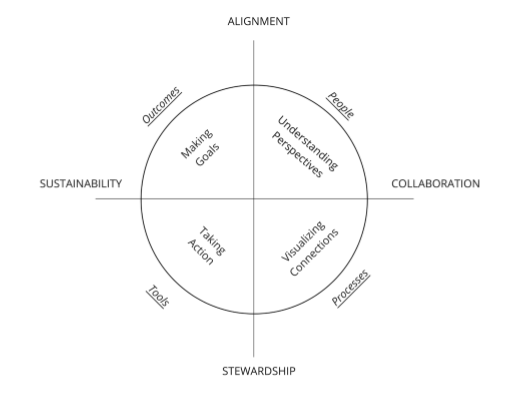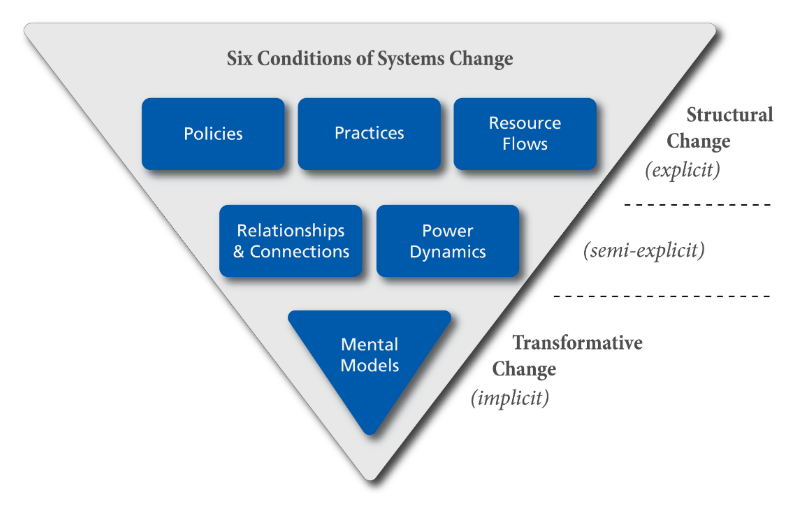Systems Thinking for Change
February 18, 2019
Using systems thinking for collaboration in technology with Blake Stockard
The 2019 Young Nonprofit Professionals (YNP) Kick-off event featured a discussion about systems thinking with Blake Stockard, President and Founder of Kumwe Systems an organization dedicated to using collaborative strategies for technological change. Blake defined the systems thinking mindset as the key to adaptiveness, outlined core characteristics of the framework, and opened discussion about techniques to use and integrate the mindset in practice.
Broadly, systems thinking is a cycle of alignment, collaboration, stewardship, and sustainability in an organization. This cycle is driven by people, processes, tools, and outcomes. Blake discussed that tools can range from complex technology (which is most of his work) to a simple staff meeting agenda. In addition, there is an underlying level to systems thinking – considering perspectives, visualizing connections, taking action, and making goals. Due to the cyclical nature of the framework, systems thinking encompasses multiple series of ideation. Blake suggested that individuals pair the systems thinking mindset with design thinking. This design thinking kit is free and contains both instructional material as well as concrete activities to help support the iterative nature of the systems thinking framework.
Systems thinking is a versatile mindset that, when incorporated effectively, provides a framework to promote a great deal of organizational problem solving. By discussing the people that drive impact and considering processes and tools that affect outcomes, systems thinking provides organizations with an adaptive way to problem solve.

Systems thinking for adaptive challenges
Systems change is all about getting at the root cause of a problem, and thinking long-term about creating broad change. One model for the different conditions of systems change was presented in The Water of Systems Change by John Kania, Mark Kramer, and Peter Senge. The conditions are outlined below:

